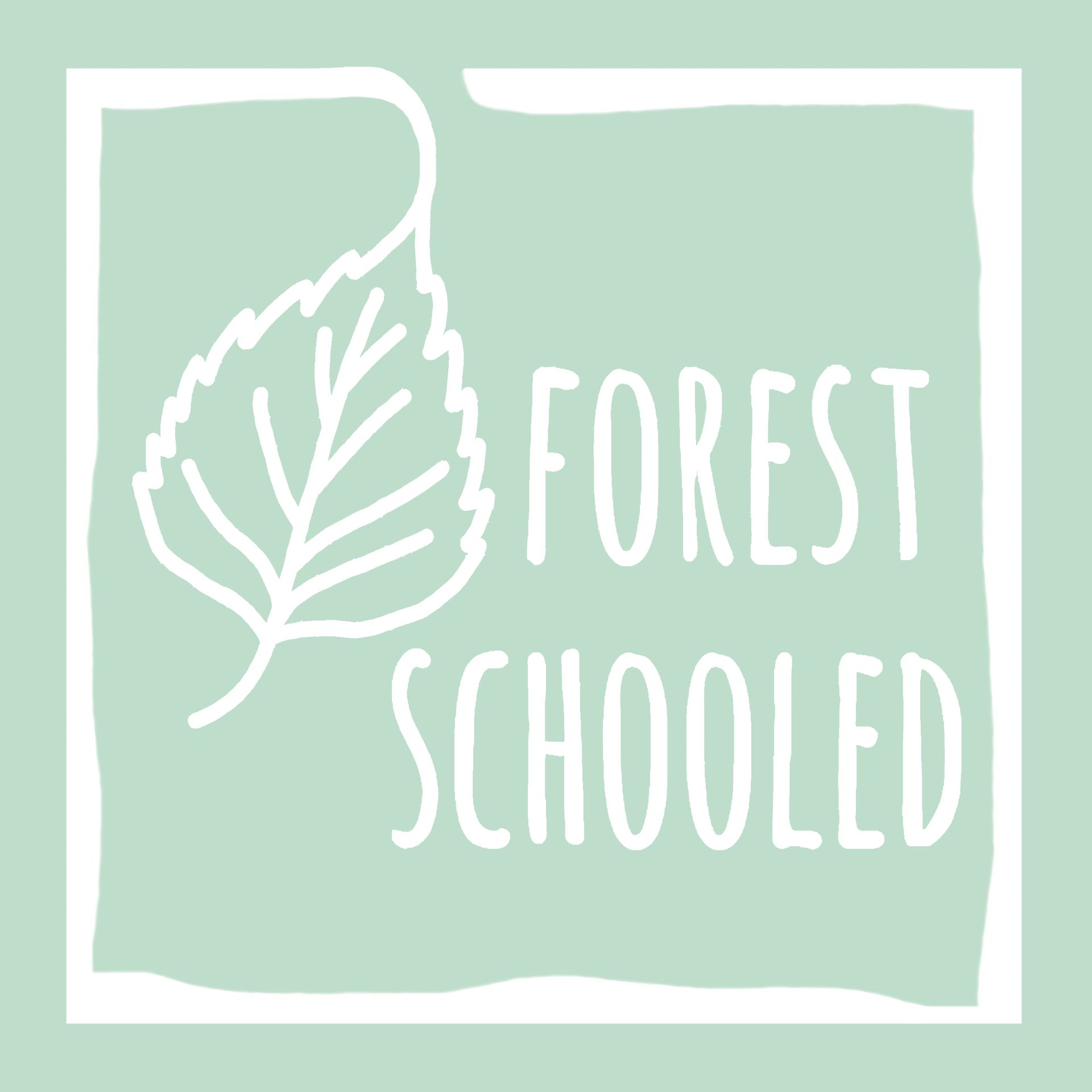
Blog
Stories from my personal journey learning about and delivering Nature-rooted programs across three different countries
Reframing the Meaning of Community in Changing Times
Caylin (Forest Schooled)
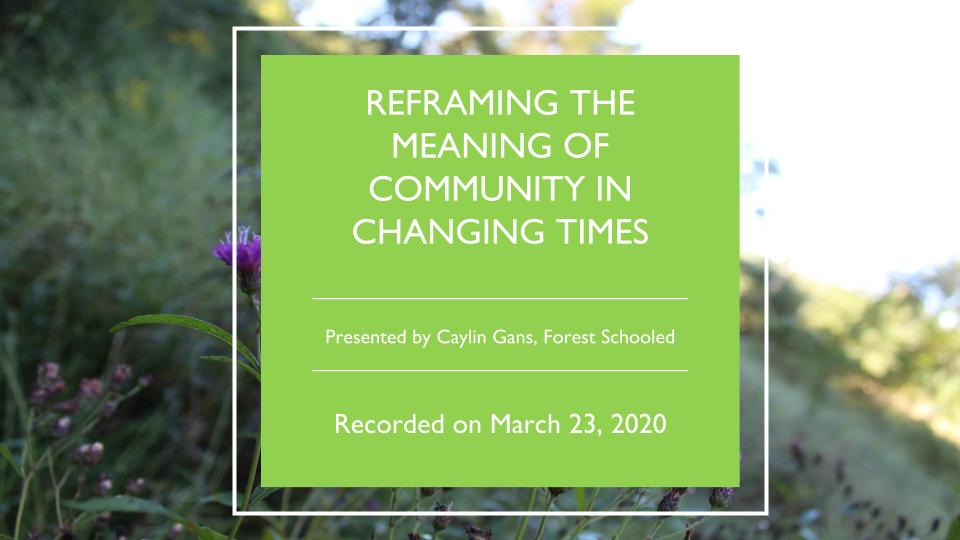
Empty space, drag to resize
I delivered a webinar yesterday in collaboration with Eastern Region Association of Forest & Nature Schools called Reframing the Meaning of Community in Changing Times. You can view the recording here. (It’s free, you just need to provide your email to view it - and the webinar starts at about 25 minutes into the video...)
In it I share ideas for building community with who I call our “natural neighbours” and I thought I'd give you a sneak preview of the presentation here...
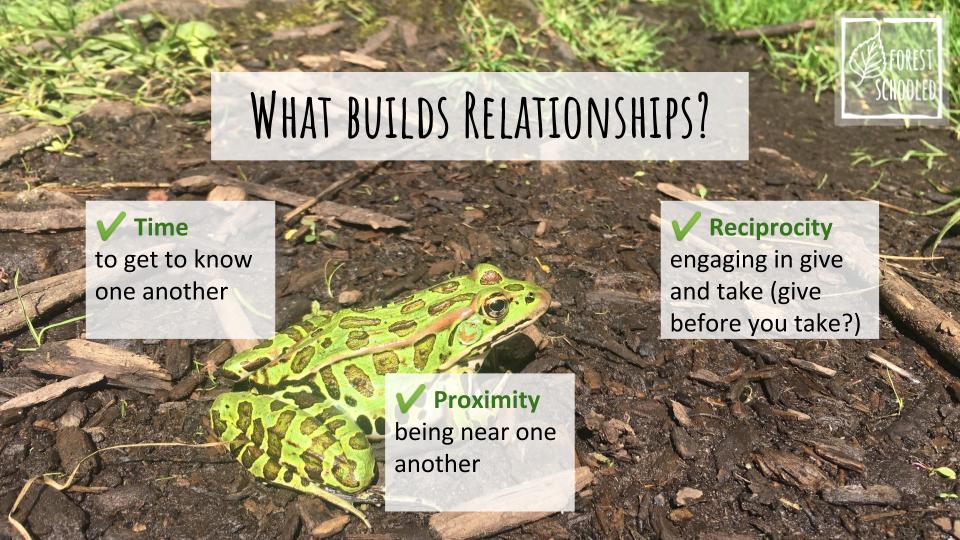
My definition of relationship building consists of 3 main things: Time, Proximity, and Reciprocity.
I want to highlight the reciprocity part. We often think about what nature can provide for us, what activities, enjoyment, relief etc. can we get from it? I’ve been asking myself more and more, what can I do for it? And to do this first. What can I give before I take?
The following ideas for getting to know our natural neighbours try to focus on interactions we can do close to home and where we can practice reciprocity.
These are things we can do with children and I also want to emphasize doing them for ourselves (we need to carve out space to take care of ourselves too!).
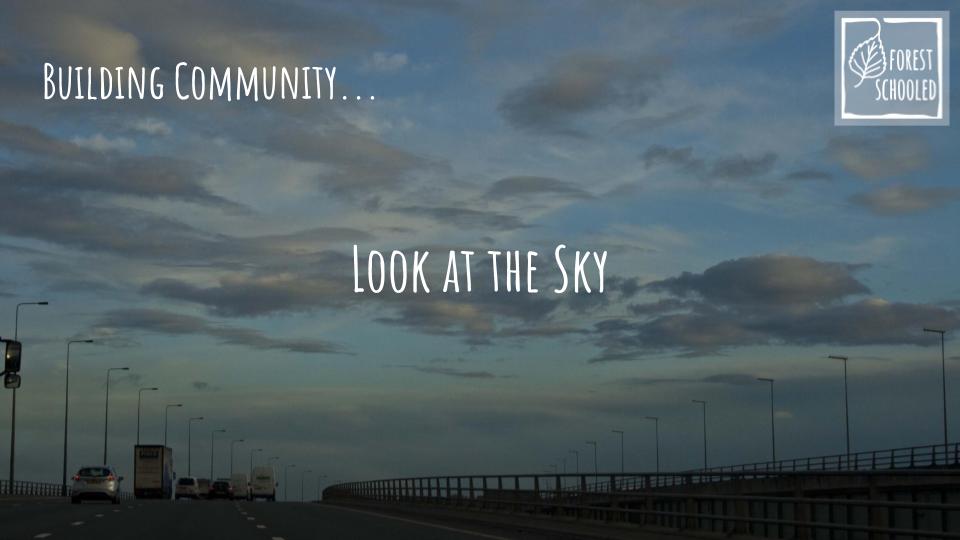
The sky is weather’s messenger, and weather dictates our lives (yet I find I rely more on apps to forecast the weather than the sky!).
Look at the sky - observe it, how does it change, what does it mean? (This can be done outdoors or from a window). Think about how the sky informs us about the weather, and how the weather impacts our day to day lives. How can we get to know the sky and what it tells us a little more?
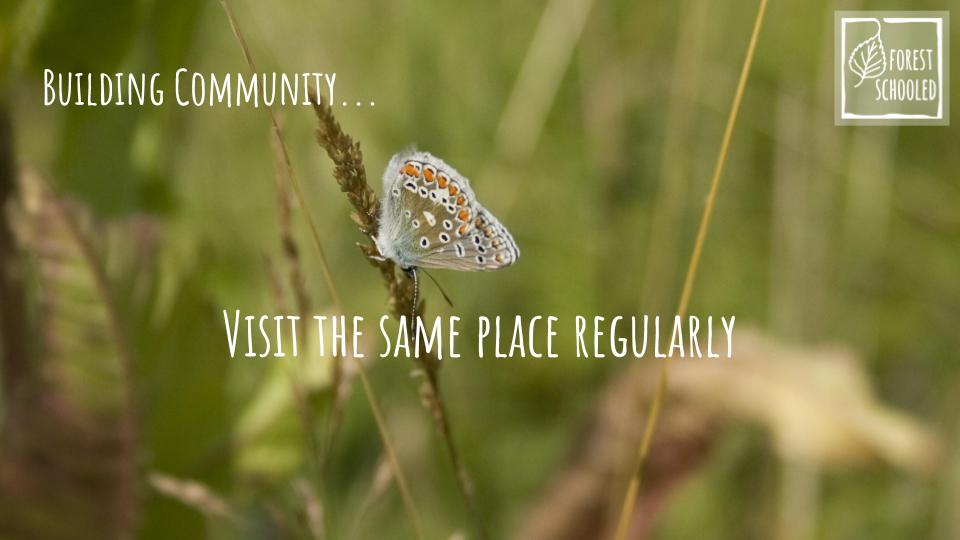
I'm wondering how many have heard of or practice sit spots? Visit the same outdoor spot every day (or sit by the same window) - notice what you observe, hear, feel, etc. and what changes day to day.
Sitting still allows for much more opportunity to engage with animals as they become used to our presence.
I also enjoy walking… and walking the same trail each time. Noticing what’s different. It’s how I’ve met some interesting new friends, like a porcupine a few weeks back that I watched shimmy its way up a tree!
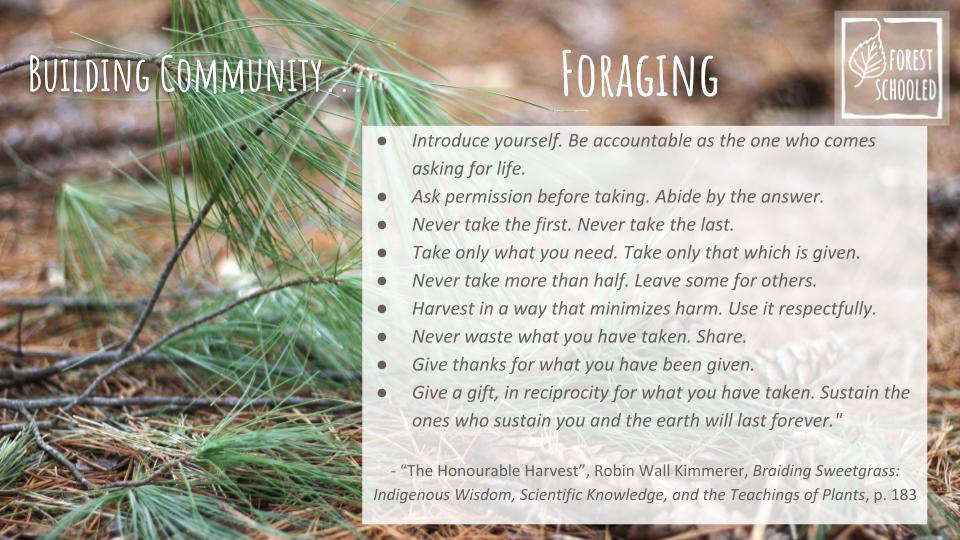
Look up edible wild plants in your area and make a recipe (I emphasize having 100% certainty in identification and to follow “the Honorable Harvest”).
One simple idea is to make a tea (e.g. pine needle tea has lots of Vitamin C) and there are plants often considered weeds that are actually edible (e.g. dandelion and nettle).
The connection between harvesting, making something, and then eating/drinking it is quite powerful. It can bring more meaning to a cup of tea when you harvested it for yourself.
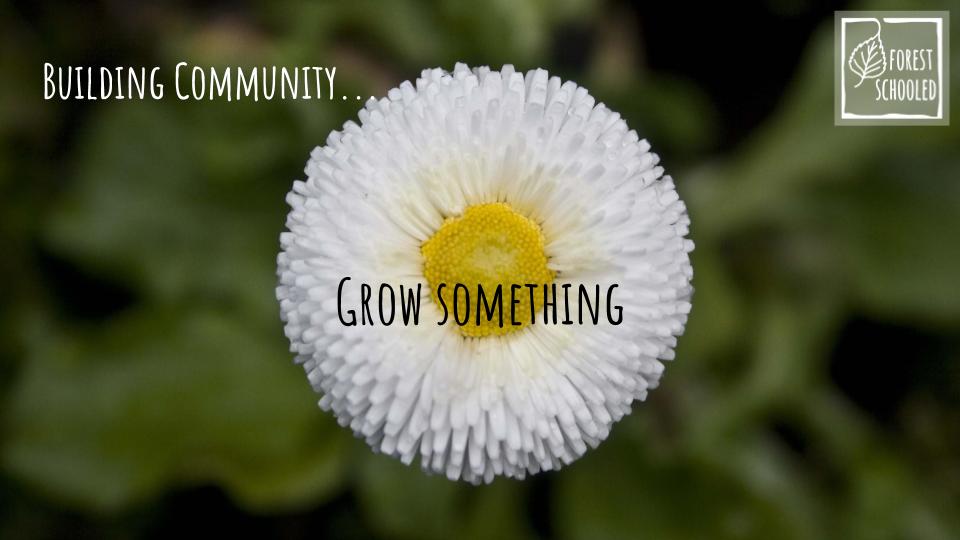
Plant something, outside or inside depending on where you are. You can even grow things with vegetable scraps!
Observe the process of how plants grow, and adapt to their conditions. We can learn a lot from plants about change and adaptation...
It can also increase our self-reliance, reduce food costs or create surplus to share with others.
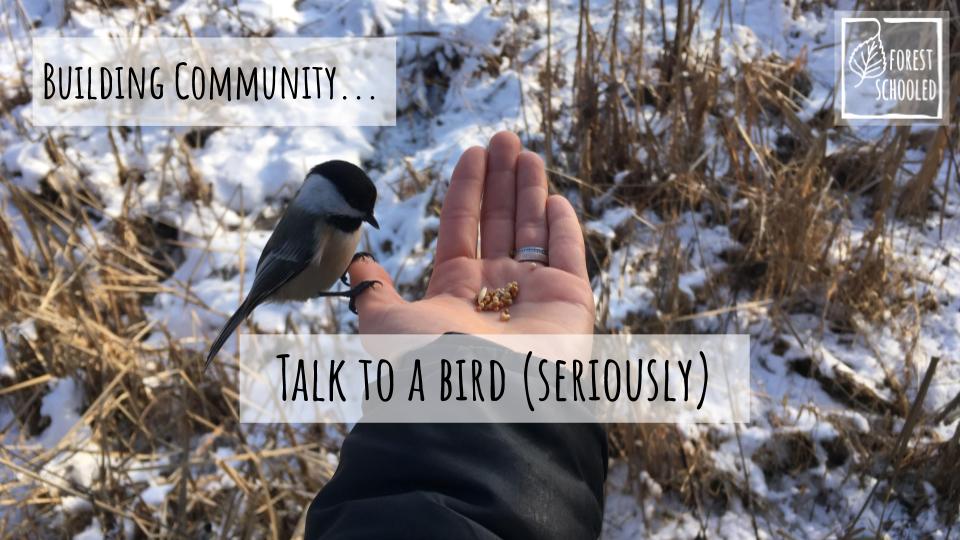
Talk to a bird (seriously). There's a place near my home where people feed and interact with birds and they essentially rush over to greet you when you arrive (like a dog meeting you at the door!).
It makes me wonder what the world would be like if we approached our relationships with all wild animals in this way?
Try setting up a bird feeder or nest box. You can also support other animals, e.g. (pollinator gardens, bug hotels, etc.)
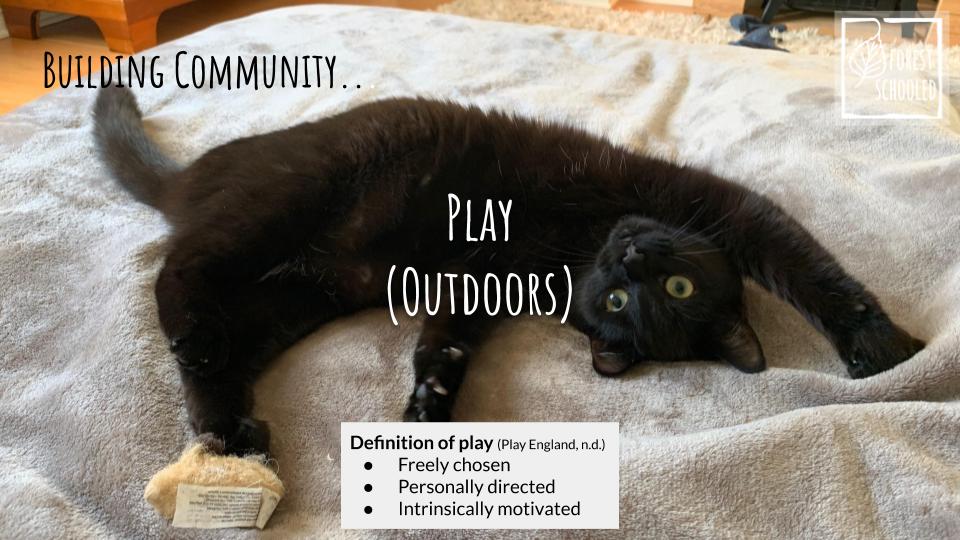
With schools closed right now a lot of people are working on sharing lots of wonderful structured and activity based programs for getting outside. That’s great.
I also want to encourage people to make space for play, true child-led, free play - outdoors. Children may be anxious, worried, scared. And they process what they are experiencing through play. Now may be the time more than ever that we may allow ourselves to worry less about what they’re learning or should be learning, and more about what they are feeling and how we can support them. Play is essential for wellbeing.
I also encourage us, as adults, to make space to play. I would argue we need play to process, reflect, and rest too.
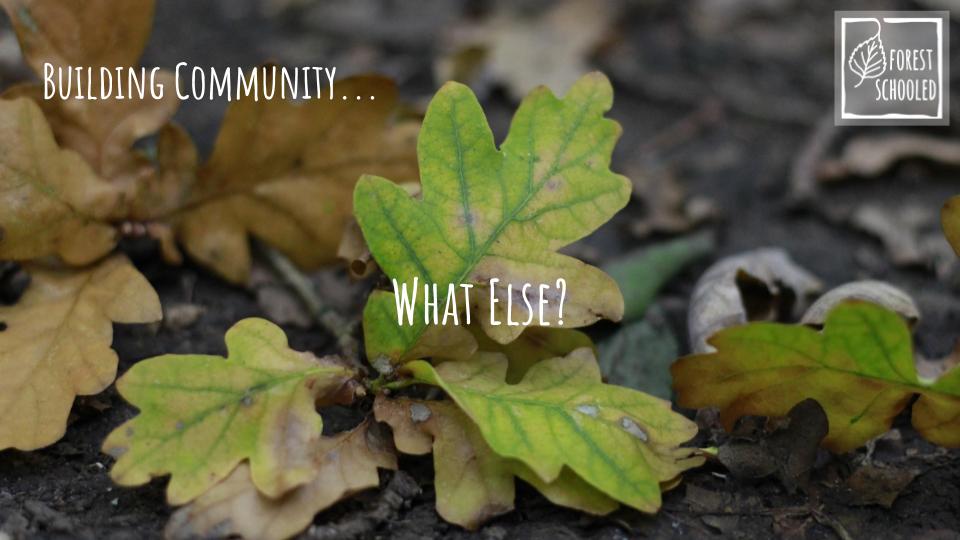
What does community mean to you? What can you do/continue to do to foster it right now?
These were some suggestions from those who attended the webinar:
- Breathing in the morning air
- Listening walks
- Colour hunts
- Making a tree friend
- Environmental cleanup/trash pickup
- Make a fairy house and add to it each day
- Make a nature journal (use at a sit spot?)
- Art outdoors
- Cloud watch
- Being barefoot and feeling the ground beneath your feet
- Learning about natural fibres, making cordage or other crafts
- Shadow hunts
- Looking for shapes
- Walk in the rain, splash in puddles
- Examine a worm habitat
- Walk along the waterfront
- Look at the sky at night, the stars and the moon
- Camp in your yard
- Notice the buds developing
- Learn to make a fire
Add more in the comments!!
Check out how I've been interacting with my natural neighbours :)
More Posts
WANT TO GET FOREST SCHOOLED TOO?
Subscribe to my email letters, something special from me to you so we can learn together. Each one is filled with heart-felt stories from the forest, resources you may find useful, and things that hopefully bring a smile too.
Thank you!
© by FOREST SCHOOLED
